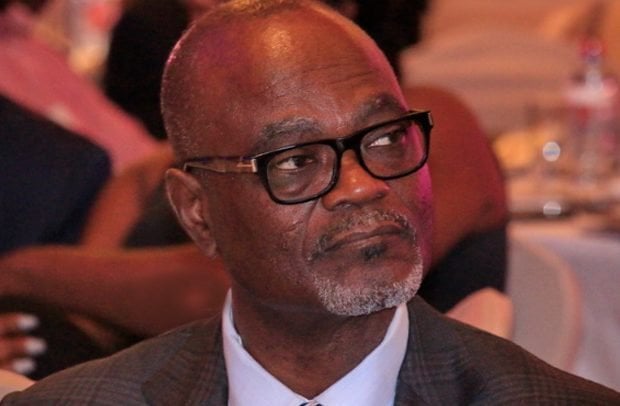Renowned businessman and philanthropist Dr. Kofi Amoah is calling for urgent collective action to address Ghana’s deepening economic crisis by establishing a National Rescue Fund (NRF) to support vulnerable citizens.
His appeal, made in a heartfelt post on social media platform X, comes as the newly elected NDC government under President John Dramani Mahama grapples with what he describes as a “battered economy” inherited from the previous administration.
Dr. Amoah did not mince words about the gravity of Ghana’s current economic woes. Referencing “empty national coffers” and “mega loans to pay to diverse group of lenders,” he urged citizens to move beyond passive observation and take an active role in rebuilding the country.
“We, the citizens, cannot sit on the fence with our usual refrain to the government of ‘yɛ ma yɛnhwe’ (do, and let’s see). I think that we must get involved meaningfully,” he stated.
To underscore his commitment, Dr. Amoah pledged a personal donation of GH₵100,000 to kickstart the NRF—pending its establishment by the Ministry of Finance. He stressed that the fund must be easily accessible to all contributors, proposing channels such as mobile money, bank transfers, and cheque payments.
“I suggest that the Minister of Finance establishes an account in the name of ‘National Rescue Fund’ that can receive contributions large and small,” he wrote.
Dr. Amoah believes the fund will serve as a crucial intervention tool to assist struggling Ghanaians, particularly in areas like healthcare and education, where nurses and teachers are increasingly voicing frustration over deteriorating working conditions.
“Let’s show that we love our country and that each of us must have her or his skin in the game, when times are hard as well as when times are good,” he appealed.
His call is directed not just at government but also at the broader Ghanaian society—both home and abroad. He specifically mentioned influential groups and institutions such as the East Legon Executive Fitness Club, religious bodies, traditional leaders, diaspora associations, and professional organizations like the Ghana Bar Association and Ghana Medical Association.
“But most importantly,” he added, “I call on individual citizens to answer this call from 2 cedis to 20 to 1,000 cedis and more to show your love for Ghana and to register your spiritual connection to Ghana with your donation.”
Dr. Amoah’s plea is rooted in his long-held philosophy of African self-reliance, urging a shift away from dependence on external aid toward homegrown solutions powered by patriotism, unity, and innovation.
For him, the National Rescue Fund would not only serve a practical purpose but also become a powerful symbol of Ghana’s resolve to chart its own course out of hardship.
“Symbols can be powerful, and action can heal. This call for action must be viewed as such and embraced for our collective determination towards a new bright dawn for our country,” he said.
In a direct appeal to President Mahama and Finance Minister Dr. Ato Forson, Dr. Amoah urged them to take up the initiative and provide the leadership and logistical support needed to launch and sustain it.
“Braa President Mahama and Braa Finance Minister Ato, we plead with respect in our hearts for you to take over this initiative and let’s create the necessary awareness and logistics to make it work… and we believe it will work,” he wrote.
Ending on an emotional and inspirational note, he referenced the iconic “We Are The World” anthem to rally the nation around a shared sense of purpose:
“There comes a time when we heed a certain call, when we must come together as one. There are people dying. Oh, and it’s time to lend a hand to life, the greatest gift of all…”
If adopted, the National Rescue Fund could become a landmark of citizen-led solidarity—an act of unity in hardship, and a vital bridge to Ghana’s economic recovery.


